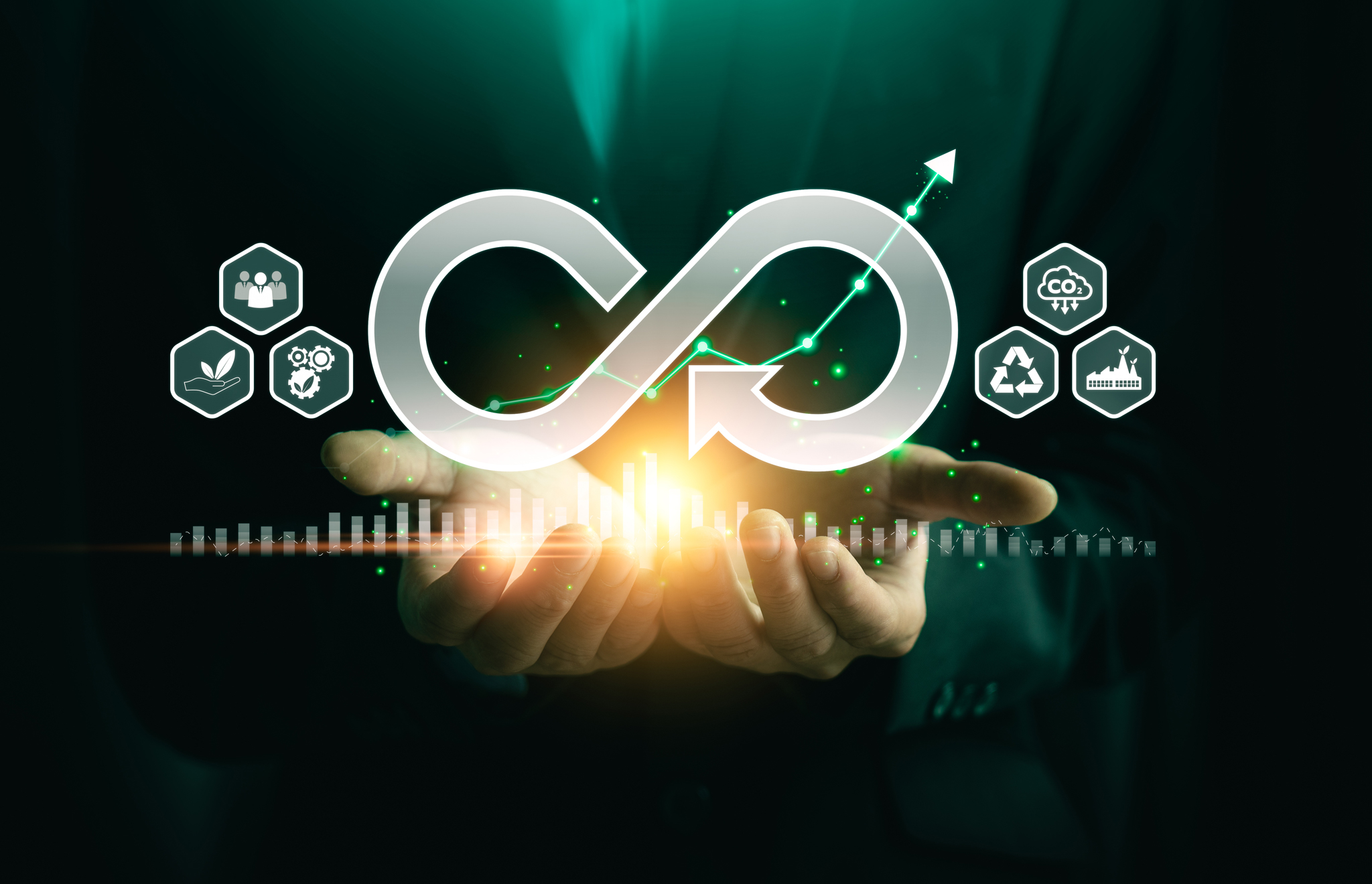Smart circular economy for complex products and services

In the »Smart Circular Economy« research focus area, we use digital technologies such as IoT, AI and digital twins to create sustainable solutions for the circular economy. We are researching the development of smart circular economy services, -applications and business processes as well as CE transformation processes. We are also working on federated data ecosystems, which provide the digital infrastructure for sharing digital twins for a smart circular economy. The aim is to enable companies to implement circular initiatives and R-strategies such as reduce, reuse, repair, remanufacturing and recycling.
Our experts develop holistic circular solutions, i.e. with a view to technology, value creation process, business model and product. They combine service engineering methods for circular, digital business processes and business models with the possibilities of federated data ecosystems such as Gaia-X and Manufacturing-X. They utilise cloud platforms and apply AI methods such as machine learning. A particular focus is on exploring the opportunities that lie in the introduction of the digital product passport (DPP). This is how circularity becomes a resource-saving growth driver!
Our subject areas
Circular Service Engineering & Prototyping
To implement a circular economy, companies need new technology-based CE business processes and services for the entire life cycle of products along the R-strategies.
- Analysing the framework conditions and developing circular economy strategies: Evaluation of political, legal, technical, economic and environmental factors to develop suitable circular economy strategies for companies
- Identification and conceptualisation of circular business processes: Systematic investigation of different business model options, modelling and selection taking into account technological, economic and ecological factors and development of prototypes for business processes
- Development and modelling of the necessary R-processes: Modelling of the necessary R processes, technological requirements for IoT and AI and development of data architectures and models
- Conception and prototypical implementation of new smart services for the circular economy: development from design thinking and detailed requirements analysis to practical implementation in digital prototypes
- Design of value creation ecosystems: Systematic modelling of value creation ecosystems for the selected circular economy strategy, including the identification and description of relevant roles and actors, as well as the consideration of flows of goods, money and data
Federated data ecosystems
Data ecosystems such as Catena-X and Manufacturing-X enable the exchange and utilisation of data across company boundaries. They are the basis for new smart services and added value in secure, trustworthy and sovereign data spaces.
- Potential of federated data ecosystems: Developing an understanding of federated data ecosystems from a business and technical perspective to implement a smart circular economy
- Enabling companies to participate in data ecosystems such as Catena-X and manufacturing: Supporting companies, especially SMEs, in participating in data ecosystems
- Development of new business models and smart services for the circular economy in data ecosystems: Supporting companies in developing new business models and smart services and identifying the value of data
- Support with governance strategies and structures: Advice on determining the value of data through proven valuation methods, designing access rights to data and sensitising companies to their role in the data ecosystem
Digital Product Passport (DPP) & Digital Twin
The digital product passport is the digital image of products over their entire life cycle. It forms the starting point for digital twins and the exchange of data
- Provision of information on current legal standardisation initiatives, regulatory requirements and international and national standardisation initiatives, including the development of an overview of technical implementation options for the DPP
- Identifying and analysing the potential and added value of the DPP and determining the mandatory requirements for new business processes and smart services
- Gathering product-specific requirements and modelling data models: Requirements analysis and specification of the DPP as well as documentation of the results in data models, also using the Asset Administration Shell (AAS) to ensure data standardisation and interoperability
- Development of customised DPP concepts and prototype implementation: Design of DPPs and prototype implementation, supported by digital tools for identifying and introducing suitable solutions as well as by the AAS and other technological solutions
Unsere Expertise
| Our expertise | Your challenges |
|---|---|
|
|